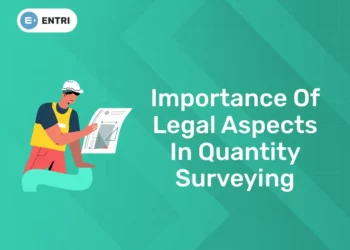Table of Contents
An affirmative sentence is a sentence that expresses a positive or true statement. It is a type of sentence that affirms or confirms something, rather than negating or denying it. In an affirmative sentence, the subject and the verb are typically in positive form. It indicates that something exists, or is happening, or is true. In this article we will discuss What is Affirmative Sentence – Examples with Answers.
Learn Spoken English with Expert Mentors! Enroll Here!
What is Affirmative Sentence -Examples with Answers
Affirmative sentences are sentences that express a positive or true statement. These sentences are used to assert or confirm something, rather than negate or deny it. In an affirmative sentence, the subject and the verb are typically in positive form, indicating that something exists, is happening, or is true. For example, “The sun is shining” is an affirmative sentence because it affirms the fact that the sun is shining. Similarly, “She is studying hard for her exam” is an affirmative sentence because it affirms that the person is studying hard for their exam.
Affirmative sentences are commonly used in everyday communication to convey positive thoughts, opinions, or feelings. Affirmative sentences are important in communication because they provide clear and direct information to the listener or reader. They help to convey ideas and express opinions in a straightforward manner. Affirmative sentences can also be used to emphasize positive attributes, actions, or characteristics of a person, object, or situation.
In grammar, affirmative sentences are contrasted with negative sentences, which express a negation or denial of something. For example, “The sun isn’t shining” is a negative sentence because it negates the fact that the sun is shining. Understanding the difference between affirmative and negative sentences is important to communicate effectively and clearly in writing and speaking. This will be discussed in the later part of this article.
Examples with Answers
Here are some examples of affirmative sentences with answers:
- “She is a doctor.” – This sentence affirms that the subject “she” is a doctor.
- “I love to travel.” – This sentence affirms that the subject “I” loves to travel.
- “The flowers in the garden are beautiful.” – This sentence affirms that the flowers in the garden are beautiful.
- “He is playing football.” – This sentence affirms that the subject “he” is playing football.
- “They are coming to the party.” – This sentence affirms that the subject “they” are coming to the party.
- “She cooks delicious food.” – This sentence affirms that the subject “she” cooks delicious food.
- “The baby is sleeping.” – This sentence affirms that the baby is sleeping.
- “We are going to the beach.” – This sentence affirms that the subject “we” are going to the beach.
- “He sings very well.” – This sentence affirms that the subject “he” sings very well.
- “She is wearing a beautiful dress.” – This sentence affirms that the subject “she” is wearing a beautiful dress.
How to Make Affirmative Statements?
To form an affirmative sentence, follow these basic steps:
Step 1: Start with a subject: Choose the noun or pronoun that is performing the action in the sentence.
Step 2: Add a verb: Choose a verb that matches the subject and the tense of the sentence.
Step 3: Add any necessary objects or complements: If the sentence requires an object or complement, add it after the verb.
Step 4: End with any additional information: If the sentence needs any additional information, add it at the end of the sentence.
Here is an example of an affirmative sentence:
Subject + Verb + Object
She + plays + the piano.
In this sentence, “she” is the subject, “plays” is the verb, and “the piano” is the object. The sentence is affirmative because it affirms that the subject is playing the piano.
Here are a few more examples of affirmative sentences:
- He is reading a book.
- They are watching a movie.
- The sun is shining.
- We are going to the park.
- She speaks three languages.
Remember, the key to forming an affirmative sentence is to express a positive or true statement. Keep the sentence structure simple and clear, and make sure that the subject and verb agree in number and tense.
Learn Spoken English with Expert Mentors! Enroll Here!
Types of Affirmative Sentences
There are different types of affirmative sentences, each with its own structure and function. Here are some examples:
Simple Affirmative Sentences:
These sentences are the most basic type of affirmative sentences, and they contain a subject and a verb.
Examples:
- She sings well.
- They work hard.
- He reads books.
Compound Affirmative Sentences:
These sentences are made up of two or more independent clauses, each with its own subject and verb, joined by a coordinating conjunction.
Examples:
- I love to read books, and my brother loves to watch movies.
- She studied hard for the exam, so she got an A.
Complex Affirmative Sentences:
These sentences have one independent clause and one or more dependent clauses, which cannot stand alone as a sentence.
Examples:
- Because she studied hard, she got an A in the exam.
- Although it was raining, they still went for a walk.
Interrogative Affirmative Sentences:
These sentences are questions that ask for information or confirmation, but are worded as affirmative statements.
Examples:
- You want to come with me, right?
- She did finish the project on time, didn’t she?
Exclamatory Affirmative Sentences:
These sentences express strong feelings or emotions in a positive way.
Examples:
- What a beautiful day it is!
- I am so happy to see you!
Understanding the different types of affirmative sentences can help you vary your sentence structure and communicate more effectively.
Negative sentences: How they are different from Affirmative sentences?
Negative sentences are sentences that express the opposite or negation of a positive statement. These sentences are used to deny or negate something that exists, is happening, or is true. In a negative sentence, the subject and the verb are typically in negative form. They indicate that something does not exist, is not happening, or is not true. Here are some examples of negative sentences:
- She is not a doctor.
- I do not love to travel.
- The flowers in the garden are not beautiful.
- He is not playing football.
- They are not coming to the party.
The main difference between affirmative and negative sentences is the way they express information. Affirmative sentences express positive or true statements, while negative sentences express the opposite or negation of those statements.
Here are some key differences between affirmative and negative sentences:
Verb form:
In an affirmative sentence, the verb is in positive form. In a negative sentence, the verb is typically in negative form (e.g. “am” vs. “am not”).
Word order:
In some cases, the word order may be different in a negative sentence compared to an affirmative sentence. Example: “I love you” vs. “I do not love you”.
Meaning:
Affirmative sentences affirm or confirm something, while negative sentences deny or negate something.
Emphasis:
Negative sentences may place more emphasis on the negation or denial of something. Affirmative sentences may place more emphasis on the positive statement being made.
Understanding the differences between affirmative and negative sentences is important for effective communication in both speaking and writing. By using the appropriate type of sentence, speakers and writers can convey their intended meaning clearly and accurately.
Ready to take your Spoken English skills to the next level? Sign up for a free demo today!
Conclusion
Affirmative sentences are an essential component of effective communication. They are statements that affirm or confirm something, and they express positive or true statements. Affirmative sentences are used to convey information, express opinions, and make statements of fact. There are different types of affirmative sentences, including simple, compound, complex, interrogative, and exclamatory sentences. Each has its own structure and function. To form an affirmative sentence, it is important to start with a subject. They we add a verb, and, if necessary, add any objects or complements. The sentence should be clear and concise, and the subject and verb should agree in number and tense. Understanding affirmative sentences and how to use them effectively help speakers and writers convey their intended meaning clearly and accurately.
FAQs
1. What is an affirmative sentence?
Ans. An affirmative sentence is a type of sentence that affirms or confirms something, expressing a positive or true statement.
2. What is the structure of an affirmative sentence?
Ans. An affirmative sentence usually consists of a subject, a verb, and, if necessary, an object or complement.
3. What are some examples of affirmative sentences?
Ans. Some examples of affirmative sentences are:
- She is a doctor.
- He loves to travel.
- The flowers in the garden are beautiful.
- They are coming to the party.
4. What is the difference between affirmative and negative sentences?
Ans. Affirmative sentences express positive or true statements, while negative sentences express the opposite or negation of those statements.
5. What are some different types of affirmative sentences?
Ans. Some different types of affirmative sentences are simple, compound, complex, interrogative, and exclamatory sentences.
6. How can I use affirmative sentences effectively in communication?
Ans. To use affirmative sentences effectively in communication, it is important to use clear and concise language. And to ensure that the subject and verb agree in number and tense. Varying your sentence structure can also help you communicate more effectively.











